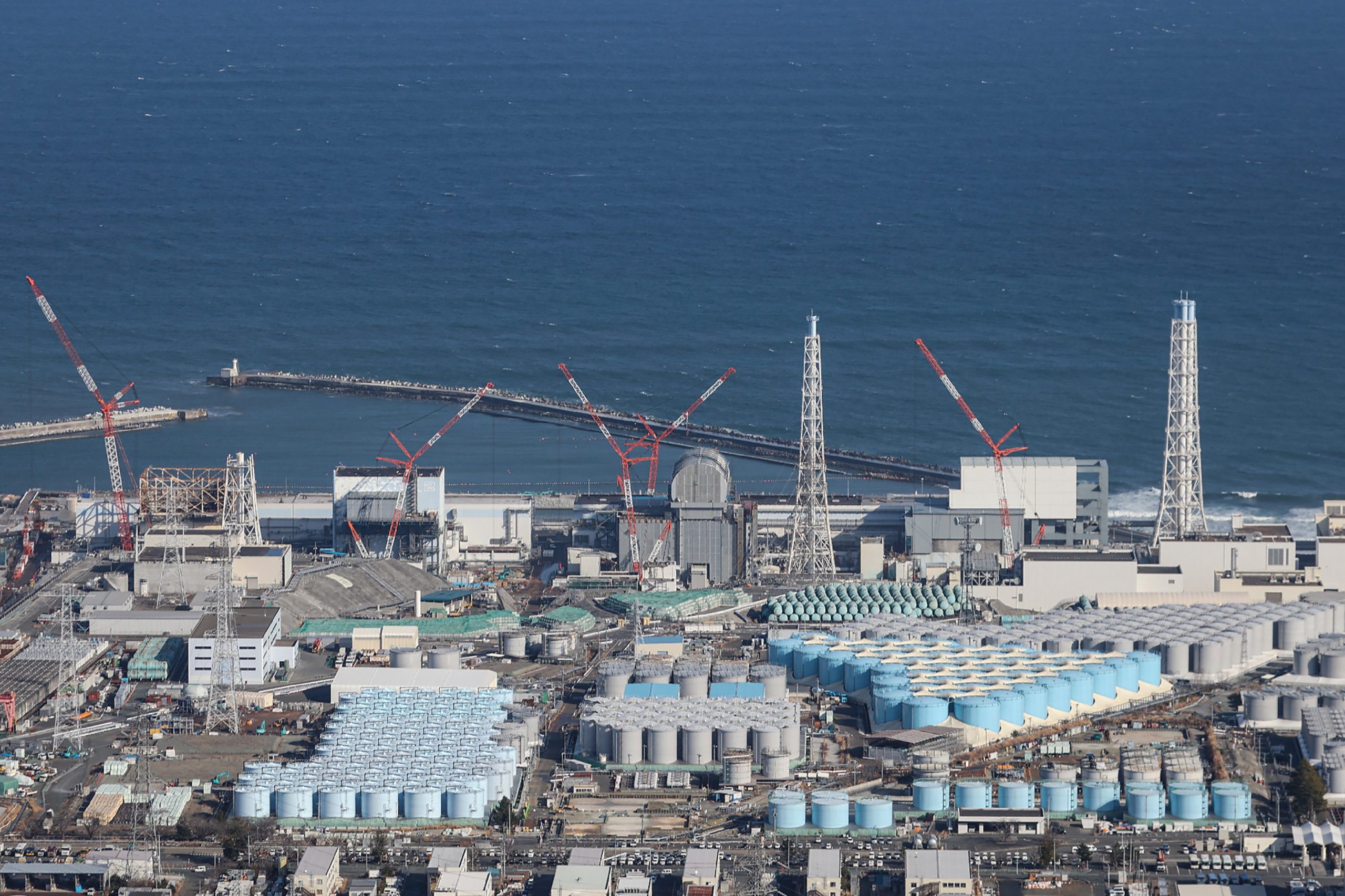
Agence France-Presse
Japan will begin releasing wastewater from the crippled Fukushima nuclear plant on Thursday in an operation it insists is safe but has generated a fierce backlash from China.
The beginning of the discharge of around 540 Olympic swimming pools’ worth of water into the Pacific over several decades is a big step in decommissioning the still highly dangerous site 12 years after one of the world’s worst nuclear accidents.
Plant operator TEPCO said Thursday morning that weather and sea conditions were suitable and that it would “switch on the seawater transfer pumps at around 1:00 p.m. (0400 GMT) to begin the ocean discharge.”
Monitors from the UN atomic watchdog, which has endorsed the plan, will be on site for the procedure, while TEPCO workers will be tasked with taking water and fish samples.
With around 1,000 steel containers holding the water, TEPCO says that it needs to clear space for the removal of highly dangerous radioactive nuclear fuel and rubble from the wrecked reactors.
Multiple meltdowns
Three of the reactors at the Fukushima-Daiichi facility in northeastern Japan went into meltdown following a massive earthquake and tsunami that killed around 18,000 people in 2011.
Since then, TEPCO has collected 1.34 million cubic meters of water contaminated from keeping cool the wrecked reactors, combined with groundwater and rain that has seeped in.
TEPCO will carry out four releases of treated water from Thursday until March 2024, with 7,800 cubic meters of water released each time, its documents showed.
The first discharge will take about 17 days. About 5 trillion becquerels of tritium will be released this fiscal year, TEPCO added.
Japan insists that all radioactive elements have been filtered out except tritium, levels of which are harmless and lower than what is discharged by operational nuclear power plants, including in China.
This is backed by most experts.
“When released into the Pacific, the tritium is further diluted into a vast body of water and would quickly get to a radioactivity level which is not discernibly different from normal sea water,” said Tom Scott from the University of Bristol in England.
“Hence, it poses very little risk and the risk itself decreases with time due to the relatively short radioactive half life… meaning that the amount of tritium (and hence the risk) continually reduces.”
Sushi safety
Not everyone is convinced, with environmental group Greenpeace saying that the filtration process is flawed, and China and Russia suggesting the water be vaporized and released into the atmosphere instead.
China has accused Japan of treating the Pacific like a “sewer”, and even before the release, Beijing banned food imports from 10 out of 47 Japanese prefectures and imposed radiation checks.
Hong Kong and Macau, both Chinese territories, followed suit this week.
Restaurants in Beijing and Hong Kong serving sushi and sashimi are already reeling from the restrictions.
“About 80 percent of the seafood products we use come from Japan,” Hong Kong caterer Jasy Choi, who runs a small kitchen for takeaway Japanese food, told AFP.
“If more than half of my Japan-imported ingredients are affected, then it would be difficult for me to continue to operate.”
Analysts said that while China may have genuine safety concerns, its strong reaction is also at least in part motivated by its economic rivalry and frosty relations with Japan.
The South Korean government, which is seeking to improve ties with Japan, has not objected although many ordinary people are worried and have staged protests.
Social media posts in China and South Korea have included false claims about the release including doctored images of deformed fish with claims they were linked to Fukushima.
-ag
